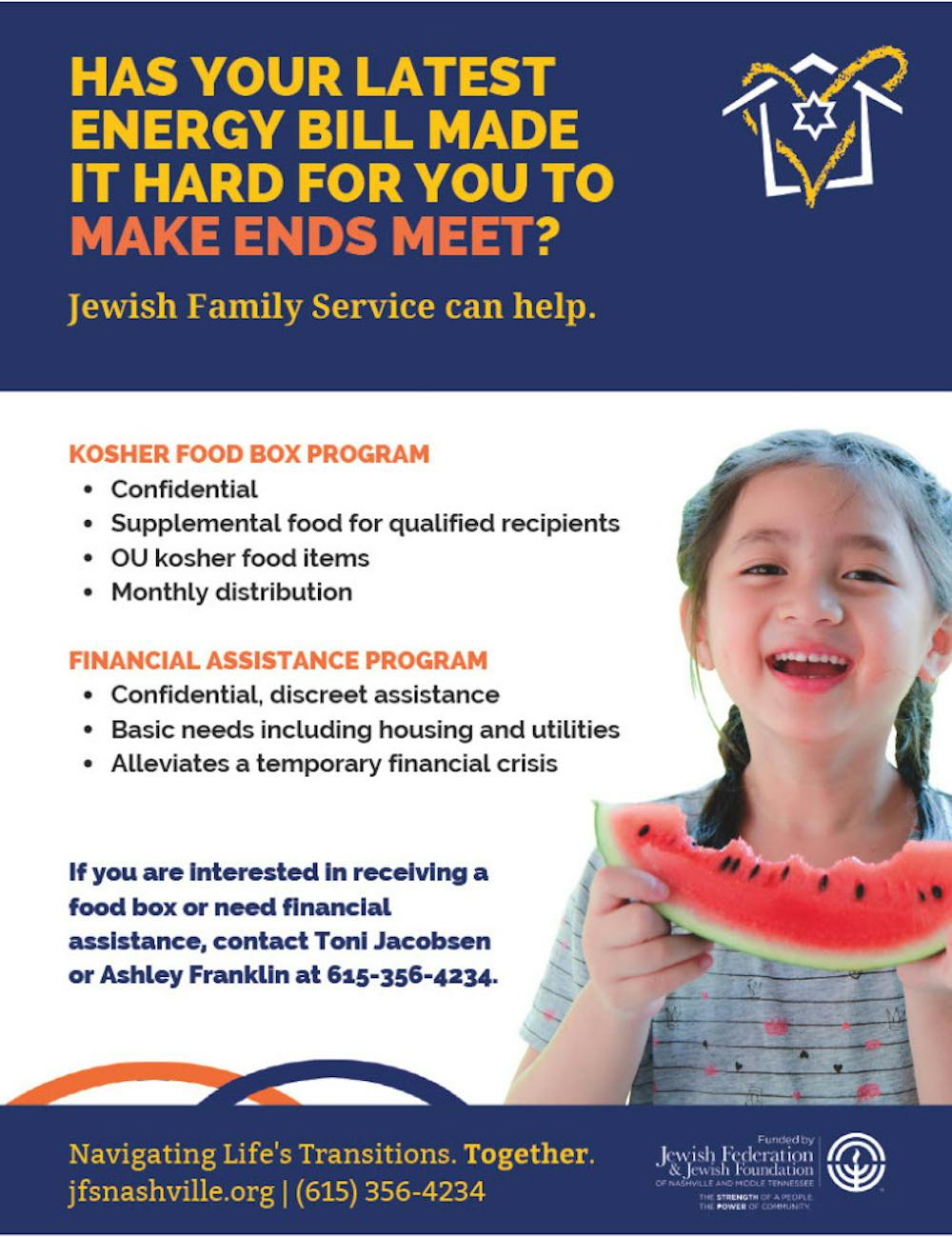
Jewish Family Service will be placing informative postcards in are synagogues. Look for them this High Holiday season.
The Covid19 pandemic is still not in the rear-view mirror. And the financial fallout continues to unfold for many Americans. According to the Center for Budget Policy, relief measures at the beginning of the crisis helped reduce very high levels of hardship. But as recently as early this year, three million fewer people are employed than before the pandemic. Rising food and utility costs, gas prices, and rent mean an already tight budget is becoming even tighter. And while there are many relief programs available, folks in the middle often do not seek out assistance. Pam Kelner, Executive Director of Jewish Family Service of Nashville, says, “We are starting to see a slight increase in requests for help, but we know there are more people out there who just don’t think they qualify.”
In fact, it is the people in the middle who often fall through the cracks simply because they are not accustomed to seeking assistance. But sometimes life throws a major curve ball. For Miriam Lebowitz the curve came in the form of an unexpected change in her job status meant a major salary cut, and as time wore on, she fell further and further behind in paying her bills. As a former staffer at The Jewish Federation and Jewish Foundation of Nashville and Middle Tennessee, she knew just where to turn. “My income was suddenly cut in half. It was very scary. I went to JFS for help, and they provided me with everything I needed to get by during a very stressful time.”
Through the years, Lebowitz says JFS has been there to assist with everything from financial planning and budgeting to helping direct her to other resources in the community. Toni Jacobsen, Clinical Director for JFS, says Miriam is an example of the types of services the agency provides for those in the middle. “We have no income guidelines or requirements,” she says, “All someone has to do is complete an online application, and we meet with the applicant to assess each individual on their particular situation.” Jacobsen says many people are afraid to apply for assistance because they don’t know how it will feel. “Most people come in fearful and anxious, but after we meet, they say it was much more enjoyable than they thought,” she says.
JFS financial services run the gamut from emergency assistance, to Kosher food boxes, Hanukah gifts, and school supplies. Jacobsen says she is always gratified when she sees the relief in her client’s faces. “We are here to help everyone, and to be a friendly face. We like to think of ourselves as an extension of their own family,” she says. And Miriam Lebowitz agrees that JFS helps make one of life’s most difficult situations much easier. “Asking for help is hard. But JFS allows you to have your dignity during a time when you don’t have a lot and it doesn’t feel very dignified,” she says, “They have such kindness and generosity of spirit. I encourage anyone going through a challenging time who needs help meeting their needs to reach out.” She says JFS helped her get to the point where she is thriving once again.
To help spread the word about JFS’ programs, the agency is placing informative postcards in local synagogues and other locations. During the High Holidays congregants will be able to see these new cards and learn more about JFS. And for more information, visit www.jfsnashville.org
The Jewish Observer is published by The Jewish Federation of Greater Nashville and made possible by funds raised in the Jewish Federation Annual Campaign. Become a supporter today.

